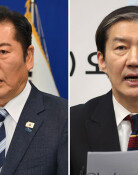Ruling and opposition parties fail to fulfill their duties
Ruling and opposition parties fail to fulfill their duties
Posted March. 01, 2025 07:23,
Updated March. 01, 2025 07:23
The second trilateral policy consultation meeting between the government, ruling, and opposition parties, scheduled for Friday, was canceled. The Democratic Party of Korea refused to participate, arguing that Choi Sang-mok, the acting president and deputy prime minister for economic affairs, could not be recognized as a dialogue partner due to his delay in appointing Ma Eun-hyuk as constitutional justice. As a result, discussions on key issues such as the Special Semiconductor Act, pension reform, and the revised supplementary budget, which had been expected to reach an agreement, came to a halt. With the political schedule likely to accelerate in March, concerns are growing that discussions on urgent economic matters may be lost altogether.
Even before the cancellation, the atmosphere was already unfavorable. A day earlier, the Democratic Party of Korea designated the Special Semiconductor Act, which excludes an exemption from the 52-hour workweek regulation for semiconductor R&D personnel, as a “fast-track” bill. The party justified the move by saying it aimed to expedite a stalled bill. However, the standing committee of the National Assembly, which is led by a member of the ruling party that insists on including the exemption, can review the bill for up to 180 days. As a result, even the stripped-down version of the bill without the exemption, which semiconductor companies have been eagerly requesting, faces an uncertain fate within the next six months.
Pension reform has also hit a deadlock, with the ruling People Power Party advocating for a 42 to 43 percent income replacement rate, while the Democratic Party of Korea supports a 44 to 45 percent rate. A newly emerged sticking point is the introduction of an “automatic adjustment mechanism.” The ruling party has expressed willingness to accept a higher income replacement rate, provided that the mechanism, which adjusts pension benefits based on factors like the number of subscribers, is introduced. However, despite the opposition party leader Lee Jae-myung taking a more flexible stance on the matter during the consultation meeting on February 20 on the condition that parliamentary approval is required, the party has since reversed its position, now firmly opposing the idea.
Regarding an early supplementary budget, the People Power Party belatedly proposed a 15-trillion-won package with prepaid cards worth 250,000 to 500,000 won for 2.7 million low-income recipients and one million won in vouchers for seven million small business owners. The plan significantly differs in size and tax details from the opposition party’s earlier 35-trillion-won proposal, which includes a 250,000-won regional currency payment for all citizens, making a consensus unlikely.
The four-way consultation meeting, which includes the National Assembly Speaker, was initially seen as a body that could break through the economic crisis in place of a dysfunctional government due to martial law and impeachment turmoil. However, over the past 50 days since reaching an agreement on the composition of the consultation meeting, whenever an agreement seemed within reach, one side introduced new conditions or retracted previous commitments. Now, political maneuvering unrelated to the economy is threatening to collapse the talks altogether. The ruling and opposition parties, preoccupied with the potential impeachment of the president and the possibility of an early presidential election, are engaging in irresponsible political strife, further dimming hopes for an economic recovery.



![[단독]이혜훈 “장남 다자녀로 연대 입학”…당시 그런 전형 없었다](https://dimg.donga.com/c/138/175/90/1/wps/NEWS/IMAGE/2026/01/23/133215083.1.jpg)



